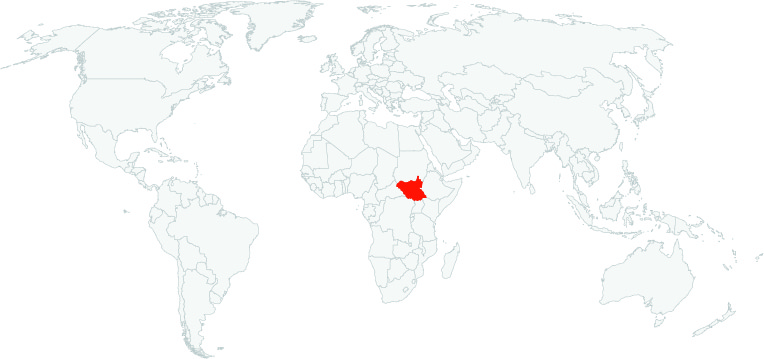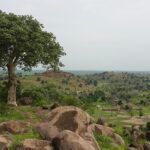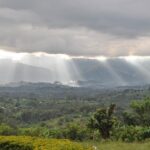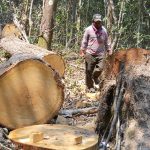
Authorities in Yei River County, Central Equatoria State, have announced a suspension of all logging activities by individuals and companies in a bid to tackle illegal practices and improve regulation.
The move comes amid widespread reports of unregulated logging in Yei, Morobo, Lainya, and Kajo-Keji counties, where both companies and individuals have been accused of exploiting forest resources without proper oversight.
The local government has not yet specified how long the suspension will remain in place or when new regulations will be implemented.
Central Equatoria State Governor Augustino Jadalla Kamilo Wani has issued a new order forming a committee to investigate the renewed logging and the sale of old logs intended for road rehabilitation in Kajo-Keji.
“The investigation will assess whether local communities and relevant government agencies were adequately consulted before the sale of old logs for road rehabilitation,” the Governor said.
He further explained that the committee would examine potential conflicts of interest by investigating whether any stakeholders have undisclosed personal or business ties to the logging or road rehabilitation projects. The committee is expected to submit a final report with recommendations for policy improvements, legal actions, and safeguards to prevent recurring violations.
The Minister for Environment and Forestry Josephine Napwon has ordered all state governments to stop issuing permits for logging.
The decision follows growing concerns from both the local community and the National Government about the ongoing logging in Kajo-Keji County in Central Equatoria State.
A multinational law enforcement operation codenamed ‘Operation Jungle Shield’, coordinated by the International Initiative of Law Enforcement for Climate (I2LEC), has uncovered extensive environmental crimes across the Congo Basin. The operation hit at organized crime groups, seizing 2,111kg of ivory and 34 kg of pangolin scales, rescuing a live pangolin from trafficking, and confiscating 180 pieces of equipment used for criminal activities. 58 suspects were arrested and charged with various environmental crimes. The total value of seizures is estimated at US$11,227,857. Additionally, the operation identified illegal logging and charcoal production activities, which are estimated to have resulted in 213,227 tons of CO2 emissions.
Many of the illegal activities uncovered were found to be destined for Asian markets.
A team led by Tanzanian remote-sensing scientist Robert Masolele used high-resolution satellite data and deep-learning techniques to draw up a map identifying the drivers of forest conversion in Africa.
The research shows that most deforested land on the continent is turned into small-scale farms, with the Democratic Republic of Congo and Madagascar being hotspots for this pattern of forest loss.
With better remote-sensing data, researchers can pinpoint where agriculture is eating into forested areas and where cash crops are replacing woodland. In this work, the group focused on commodity crops like cacao, oil palm, rubber and coffee, which are targeted under the European Union’s recently enacted rules to restrict import of crops linked to deforestation.
The ministers of agriculture, environment, and forest, and local government and law enforcement agencies appeared before the Central Equatoria State assembly to answer concerns about rampant logging in Kajo-Keji County. The ministers and Kajo-Keji County Commissioner were summoned by the house two weeks ago to answer serious concerns raised by lawmakers about the persistent logging in Kajo-Keji County despite an executive order banning logging activities.
The governor of Western Equatoria State Monday this week issued a gubernatorial order for fresh registration of logging equipment to curb rampant illegal logging in the state. Governor Gen. Alfred Futuyo Karaba in his order seen by the Radio Tamazuj on Tuesday ordered all logging companies in the state to register their equipment.
Click here to access the Global Illegal Logging and Associated Trade (ILAT) Risk assessment tool and to download the Forest Trends User Guide describing the functionality of the ILAT Risk Data Tool.
Click here to access the Cattle Data Tool.






